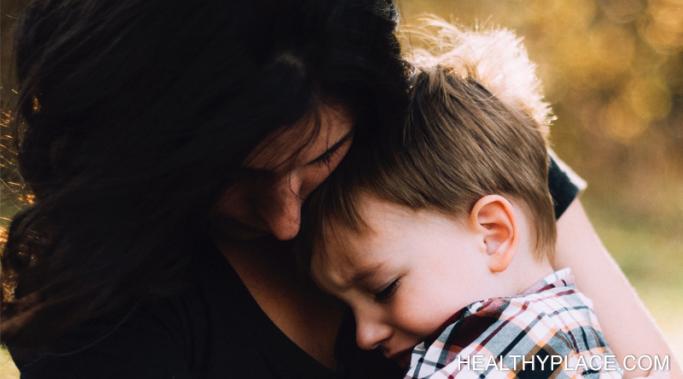Blogs
My son Ben spent his Saturday afternoon playing basketball with 3 friends.
If you, too, have a child or other relative living with mental illness, you know that this is a small miracle - or maybe not so small. Ben's social brain function has been among the victims of his schizophrenia. But it's possible that it can come back - and, in some ways, it has begun to.
In this crazy world of ours, there is rarely a break from news stories of tragedy. How can we watch the horrid news reports, complete with video of the terror and, as a human, not be affected? And more importantly, given that we feel deeply and intensely, how can we keep calm in the face of these tragedies?
There are tragedies happening all over the world all the time. Most of them we don't hear about or do hear about and don't think of too much. Bombings like the ones in Boston are common place in many parts of the world. When we know about it, our hearts go out to the people involved. When it is closer to us, either geographically or we have some connection to the people involved or the place involved, we may feel the sadness deeper.
Trauma affects you to a degree, that's a given. But can you choose how trauma affects you? On Monday, our nation was faced, yet again, with a staggering attack in the midst of one of the most celebrated and community oriented events in Boston every year, The Boston Marathon. Faced with our constant vulnerability, it can be tough to learn to live in a world where you can do your best to be safe -- and still have zero guarantees.
What do you do when you don't know what to do? Last week, on my radio show, I interviewed Ashley Lambert-Wise, founder of BattlingBare.org, a non-profit whose mission is to raise awareness for PTSD and TBI (Traumatic Brain Injury) in the military.
Tragic and traumatic events seem to happen often. More and more, parents have tough conversations about why these things happen. Even if parents take measures to limit awareness of scary events, as with the Boston marathon bombings, children still have access to the news. Due to easy access to the news, children often see traumatic events unfold in real time. They are exposed to scary events through television, computers, smartphones or even word of mouth. As a result, children get scared and may experience symptoms of trauma.
Recently I had a nightmare. I was in handcuffs and shackles, being transported by police to Richmond State Hospital in Richmond, Indiana, and determined not to go. I consider my time at Richmond State the worst four months of my life, and I don't want to go back. In the dream, I kicked the paddy wagon door--and in real life woke up when my foot connected with my window. Later that day, I wrote about it and realized the therapeutic power of writing.
Those with an interest in the history of American medicine will recall how the delivery infrastructure has evolved through the years, from careless care to poorly managed care to mismanaged care to the paradigm currently in vogue, managed care.
Seems simple enough, and yet, there are as many definitions for managed care as there are for quincunx, so let’s cut through the clutter and have a look at what it actually means, especially in a mental illness/mental health context.
Historically, care could only be denied on a case-by-case basis, which was very time consuming for care providers. Insurance companies struggled with tremendous overhead because it was necessary for them to maintain large departments staffed by professionals skilled at denying claims one at a time.
I love music and I love having ADHD, though it can get out of control at times. For example, I am SUPER HYPER today. It's the first day of my spring break week; I need the structure school provides, plus I miss my lab partner. On days like today, classical piano is on my music menu. Tomorrow, when I inevitably come down from the hyperness of today, fellow ADHD'er Justin Timberlake is what I'll order.
Tomorrow morning, I get the wonderful opportunity to address the future directly.
I will be a part of The Royal’s anti-stigma project titled ‘Is It Just Me? Conversations in Mental Health’ that addresses hundreds of high school students on the topic of mental illness.
O Romeo, Romeo! wherefore art thou Romeo? Deny thy father and refuse thy name; Or, if thou wilt not, be but sworn my love, And I'll no longer be a Capulet.
There’s a piece of knowledge stuck in a cranny of my mind. Shakespeare. An important guy who wrote some important works, to be sure, and we all study him, for good reason. But how many of us use Shakespeare in our lives? Not too many, I’d wager.
And yet I don’t recall a single class being taught on mental illness. Not one reference to the signs of suicide despite it being the end to Romeo and Juliet, the same play stuck in my mind's crannies. Not one reference to mental illness in my education. And one-in-four people could use that later in their lives.
It would be interesting if we took a few minutes to recall the stigmatizing feedback we've received about our mental illness. Together, we could compile a book of stupid mental health comments that rivals the dictionary in length. But that would take a lot of time and, frankly, might irritate us. So, in light of that, let's focus on some common stigmatizing feedback we might receive about mental illness and how we can respond to it.








